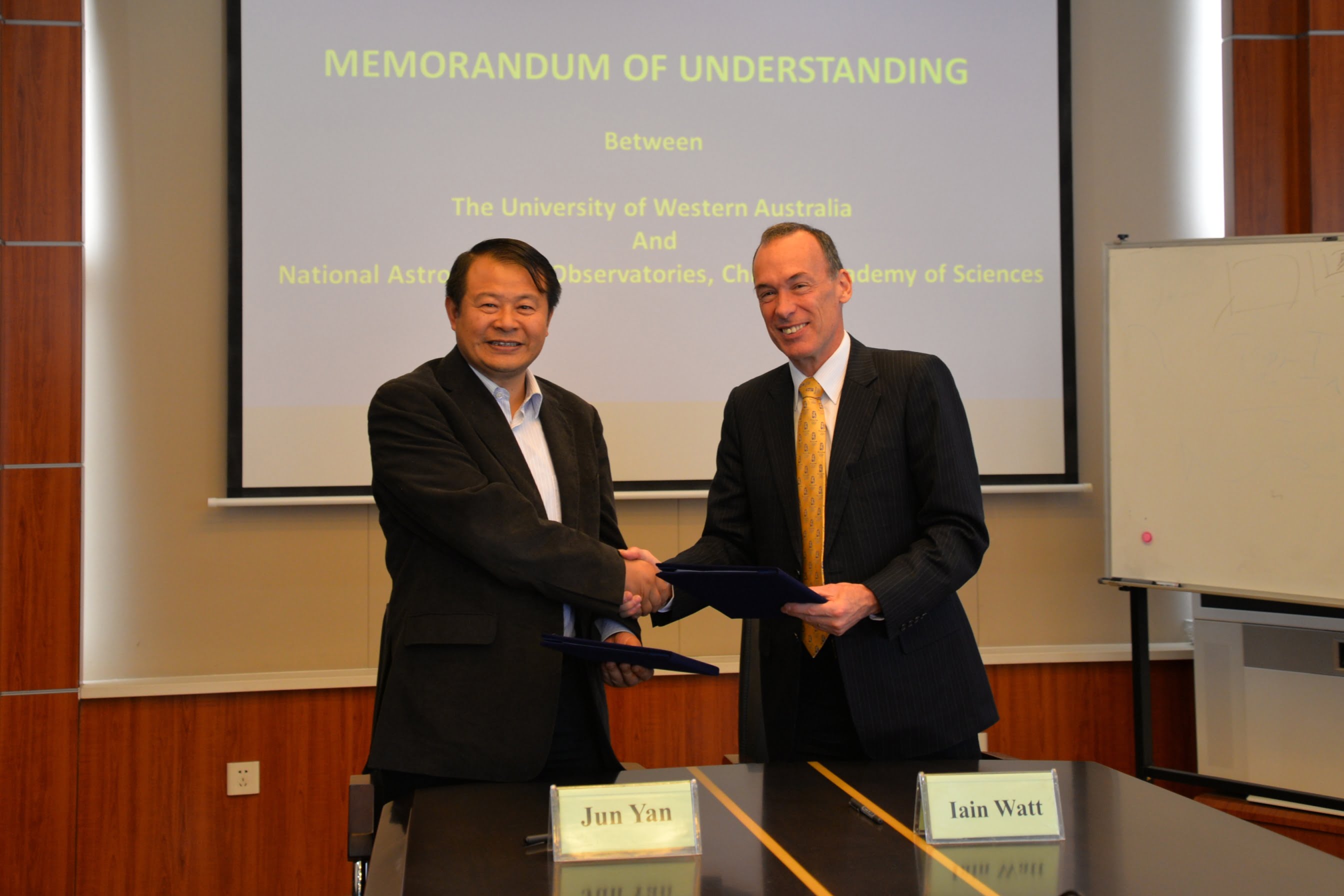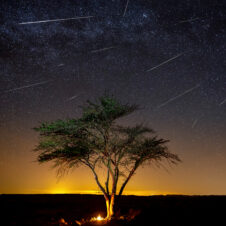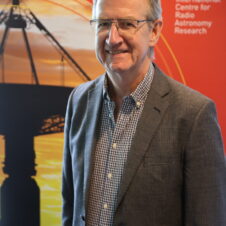The students will work alongside top astrophysicists at the UWA node of the International Centre for Radio Astronomy Research, honing their skills to help make the world’s biggest radio telescope, the Square Kilometre Array (SKA), a reality.
The SKA will be built from 2018 with different parts of the telescope located in Australia and South Africa. Australia will host a low frequency array as well as a fast survey ‘dish’ array at its core site in Western Australia, and South Africa will host an array of high frequency ‘dish’ antennas in the Karoo region.
The unprecedented sensitivity of the thousands of individual radio receivers will combine to create the world’s largest radio telescope. The new telescope will give astronomers insight into the formation and evolution of the first stars and galaxies after the Big Bang, the role of cosmic magnetism, the nature of gravity and possibly even life beyond Earth.
“The SKA will be the biggest radio telescope ever built and a significant challenge for the world’s scientists and engineers,” said Professor Lister Staveley-Smith, Director of Science at ICRAR-UWA.
“To make it work we have to come up with innovative solutions, which in turn might lead to spin off technologies that might benefit the lives of people. You only have to look to the development of computers, the Internet, satellite ranging, medical imaging or Wi-Fi to see what technology research and development can lead to,” said Professor Staveley-Smith.
Up to 10 Chinese PhD students will come to UWA each year for the next five years to learn and perform research in areas such as galaxy evolution, star formation, dark matter and mapping the large scale structure of the Universe.
At the end of their study the students will graduate and join the ranks of scientists and engineers around the world, working on big projects like the Square Kilometre Array or the Five-hundred-meter Aperture Spherical radio Telescope (FAST) — a 500m single dish radio telescope currently being built in Guizhou Province, in southwest China.
“As a Perth-based educational institution we have close ties to our colleagues across the Asia-Pacific region. This is a tremendous investment by China and UWA that will undoubtedly be of significant benefit to the SKA project and other projects in the future,” said Professor Paul Johnson, Vice-Chancellor of UWA.
The Memorandum of Understanding was signed by Mr Iain Watt, Pro Vice-Chancellor (International) of UWA and Professor Jun Yan, Director of the NAOC, during a ceremony held at NAOC Headquarters in Beijing.

Professor Jun Yan, Director of the NAOC and Mr Iain Watt, UWA’s Pro Vice-Chancellor (International), sign the Memorandum of Understanding at a ceremony in Beijing.
Supporting Multimedia:
Media Contacts
Pete Wheeler, ICRAR Media Contact +61 (8) 6488 7758 / +61 (4) 23 982 018
David Stacey, UWA Media Manager +61 (8) 6488 3229 / +61 (4) 32 637 716

